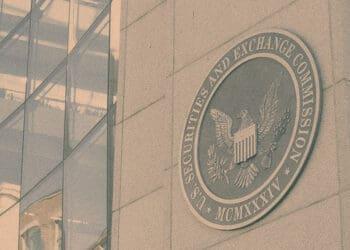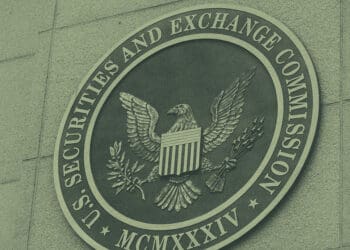The SEC has finalized its long-awaited clawback policy mandated by the Dodd-Frank Act, issuing final rules that are scheduled to go into effect in late January 2023. ESG columnist John Peiserich offers his take on the nuances of the rule and the ripple effects it might have.
The rule, formally titled “Listing Standards for Recovery of Erroneously Awarded Compensation Final Rule,” requires clawing back incentive-based executive compensation that was awarded based on a company reaching certain financial targets if it is later discovered that those financials were inaccurately reported. It applies even if the executive cannot be found to be at fault for the error and would apply for both current and former executives.
However, the final rule’s text includes language that wasn’t anticipated. It provides that executives can be made to disgorge the compensation, even if the financial report reissue was to correct a nonmaterial error that may become material if left uncorrected — a “little r” restatement. Of course, “big R” restatements, those corrections that are issued because a financial statement was in error at the time of issuance, can also trigger reimbursement.
The rule specifies the executives that are subject to clawback and defines an executive officer as, “The issuer’s president, principal financial officer, principal accounting officer (or if there is no such accounting officer, the controller), any vice-president of the issuer in charge of a principal business unit, division, or function (such as sales, administration, or finance), any other officer who performs a policy-making function, or any other person who performs similar policy-making functions for the issuer. Executive officers of the issuer’s parent(s) or subsidiaries are deemed executive officers of the issuer if they perform such policy making functions for the issuer. In addition, when the issuer is a limited partnership, officers or employees of the general partner(s) who perform policy-making functions for the limited partnership are deemed officers of the limited partnership. When the issuer is a trust, officers, or employees of the trustee(s) who perform policy-making functions for the trust are deemed officers of the trust. Policy-making function is not intended to include policy-making functions that are not significant.”
The definition is broad, and the inclusion of “any other officer who performs a policy-making function” seems to open the door to ESG policy-making officers like chief sustainability officers.
Defining materiality
Materiality in the ESG realm may be defined as information that is relevant and important to the effectiveness and financial significance of a specific effort that is part of a company’s ESG strategy. To be material, the effort would be deemed fundamental to the long-term success of the company’s ESG strategy. However, because different organizations issue ESG standards, there may be different definitions of materiality, viewed from the perspective of the company or from the perspective of an investor. This leads to potential confusion for both companies and investors, at least until the SEC provides a definition of ESG materiality. Of course, there is the existing obligation to report any material issue as part of the overall SEC requirements, and a reported/reportable issue maybe ESG-related.
As for materiality from a financial reporting perspective, my colleague Jean Chow-Callam, a forensic accountant with over 25 years’ experience, says companies need to look at issues both quantitatively and qualitatively. Until new rules or guidance or clarifications are provided on materiality on ESG impact by the SEC or other authorities, materiality is that gray area and where impact to clients will differ depending on their specific circumstances.
Risks created by the final rule
The new final rule creates a risk related to ESG reporting for executives, including those who are tasked with sustainability policy. Also, executive risk is higher because of lack of certainty and specificity surrounding ESG reporting. This type of risk may not have been apparent to the C-suite when the push toward ESG report first began and has since gained momentum.
Jean agrees on the risk management perspective; in addition, her big takeaway is that if it is established that there is or there needs to be a “restatement” then a company would most likely need to or want to conduct a corporate internal investigation to know the impact. What would be the clawback and how/why did it happen (regardless of a big or small “r”)?
From Jean’s perspective, one component of the new requirement has significant impact and says, “Further the final rules require specific disclosure of the listed issuer’s policy on recovery of incentive-based compensation and information about actions taken pursuant to such recovery policy. The amendments also require all listed issuers to: (i) file their written recovery policies as exhibits to their annual reports; (ii) indicate by check boxes on their annual reports whether the financial statements included in the filings reflect correction of an error to previously issued financial statements and whether any of those error corrections are restatements that required a recovery analysis; and (iii) disclose any actions they have taken pursuant to such recovery policies.”
When asked for her thoughts on whether the new rule creates higher executive risk, Jean said that the short answer is “yes,” but the real answer is more likely “it depends.” Considering her significant experience in compliance, internal controls, governance, forensic accounting, auditing, fraud investigations and financial statement related matters, if she says, “it depends,” it is most certainly a complicated issue.
Why ESG Programs Should Make Internal Audit an Ally
Recent research shows internal audit functions are rarely involved in setting strategy for ESG or even in reviewing how goals are tracked and monitored. EY’s Kapish Vanvaria argues that ESG leaders should make friends with their internal audit colleagues — for everyone’s sake.
Conclusion
The new final rule is an interesting issue. The pending climate change disclosure rule from SEC, which seems to have trouble getting out of the development stage, will have an additive impact to the new final rule. The intersection of the new final rule and climate change disclosures create confusion and risk for the C-suite. When we also consider the addition of voluntary sustainability reporting the opportunity for small issues to become major concerns seems to be significant.





 John Peiserich is a senior vice president in J.S. Held’s Environmental, Health & Safety — Risk & Compliance group. With over 30 years of experience, John provides consulting and expert services for heavy industry and law firms throughout the country with a focus on oil and gas, energy and public utilities. He has extensive experience evaluating risk associated with potential and ongoing compliance obligations, developing strategies around those obligations, and working to implement a client-focused compliance strategy. He has appointments as an independent monitor through EPA’s Suspension and Debarment Program. John routinely supports clients in a forward-facing role for rulemaking and legislative issues involving energy, environmental, oil and gas, and related issues.
John Peiserich is a senior vice president in J.S. Held’s Environmental, Health & Safety — Risk & Compliance group. With over 30 years of experience, John provides consulting and expert services for heavy industry and law firms throughout the country with a focus on oil and gas, energy and public utilities. He has extensive experience evaluating risk associated with potential and ongoing compliance obligations, developing strategies around those obligations, and working to implement a client-focused compliance strategy. He has appointments as an independent monitor through EPA’s Suspension and Debarment Program. John routinely supports clients in a forward-facing role for rulemaking and legislative issues involving energy, environmental, oil and gas, and related issues. 






